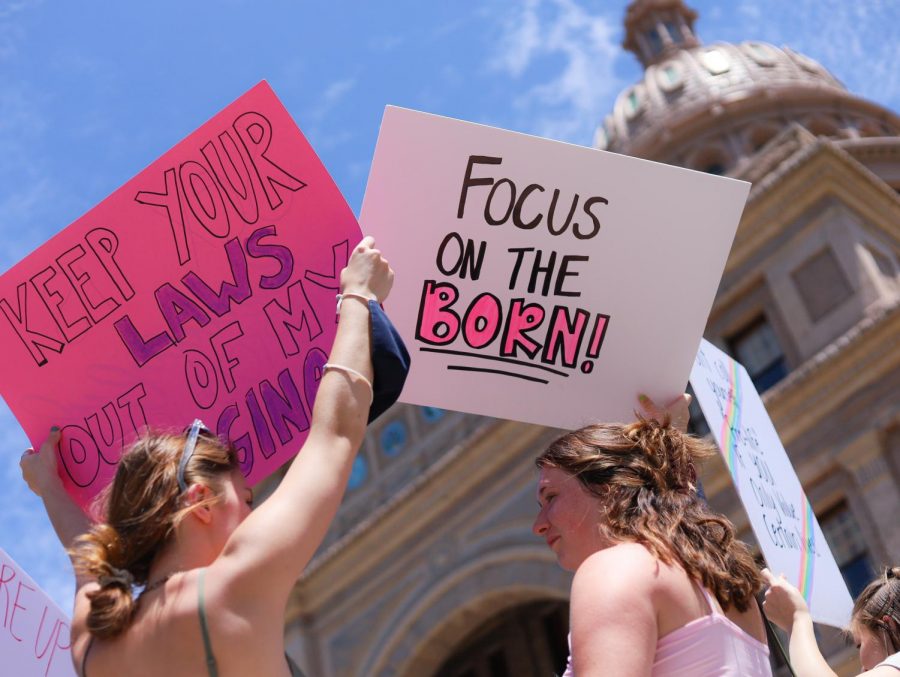Citizens protest new abortion law outside Texas Capitol
May 29, 2021
Protestors gathered outside the Texas Capitol on Saturday in protest of Senate Bill 8, which bans abortions when a heartbeat can be detected.
On May 19, Gov. Greg Abbott signed into law one of the most restrictive abortion laws in the country. The bill bans abortion as early as six weeks or as soon as a heartbeat is detected, with exception of medical emergencies, but not for rape or incest. The law is effective Sept. 1.
“Abortion is still legal and available throughout Texas,” said Bhavik Kumar, Planned Parenthood Gulf Coast’s medical director for primary and trans care. “Abortion remains extremely safe, in fact, one of the safest things that I can do as a physician. And abortion is a human right. Every single human being has a right to access safe, legal abortion because it saves lives.”
The bill is expected to be taken to court, according to the Texas Tribune. Organizers cannot sue the state over this bill because the state is not the body enforcing the law. Instead, organizers have to wait to be sued by a private citizen and then can take the case to court.
Erika Forbes, one of the organizers with Just Texas, said the group was not allowed on the Capitol steps, even though most protesters at the Capitol typically are. Just Texas is a grassroots movement built of faith leaders in support of reproductive freedom and LGBTQ+ equality for all Texans.
“I also want to make it clear that we are not on the Capitol steps today … because they perceive us as a threat,” Forbes said. “We’re not a threat to them. We’re a threat to those that are trying to keep our rights from us. Not because we want to hurt them, but because we want to stop them from trying to decide for us what we get to do with our bodies.”
The bill also allows any citizen to sue abortion providers or anyone who assists an individual in getting an abortion after a fetal heartbeat can be detected.
“This bill also allows anti-abortion extremists to harass and sue Texas abortion funds, like the Lilith Fund, simply for supporting our fellow Texans,” said Amanda Beatriz Williams, executive director of the Lilith Fund for Reproductive Equality. “Simply for caring for our own communities. Simply for doing the very thing that should be the primary duty of the politicians in this building behind me.”
Many protestors held signs, including some which read, “Keep abortion safe & legal,” “Our bodies are not up for debate,” and “If you can’t trust me with a choice, how can you trust me with a child?”
There was a small group of roughly 100 people who called themselves the pro-life generation and were opposing protestors. The groups were divided by police and barriers, so conflict was minimal.
“During a session in which we should have been focusing on building protections for our electric grid and deciding how to come together as a state to recover from a pandemic,” Rep. Donna Howard said. “Legislators in that building who are supposed to be representing you instead chose partisan politics and once again threatened Texans bodily autonomy.”
The U.S. Supreme Court agreed May 17 to hear a case regarding a Mississippi law that bans abortion after 15 weeks. On May 24, the Texas Legislature passed House Bill 1280, which would take effect 30 days after the Supreme Court overturns Roe v. Wade if it rules the Mississippi law to be constitutional.
According to a University of Texas and Texas Tribune poll in 2019, a little less than half of Texas voters favor outlawing abortion after six weeks.












